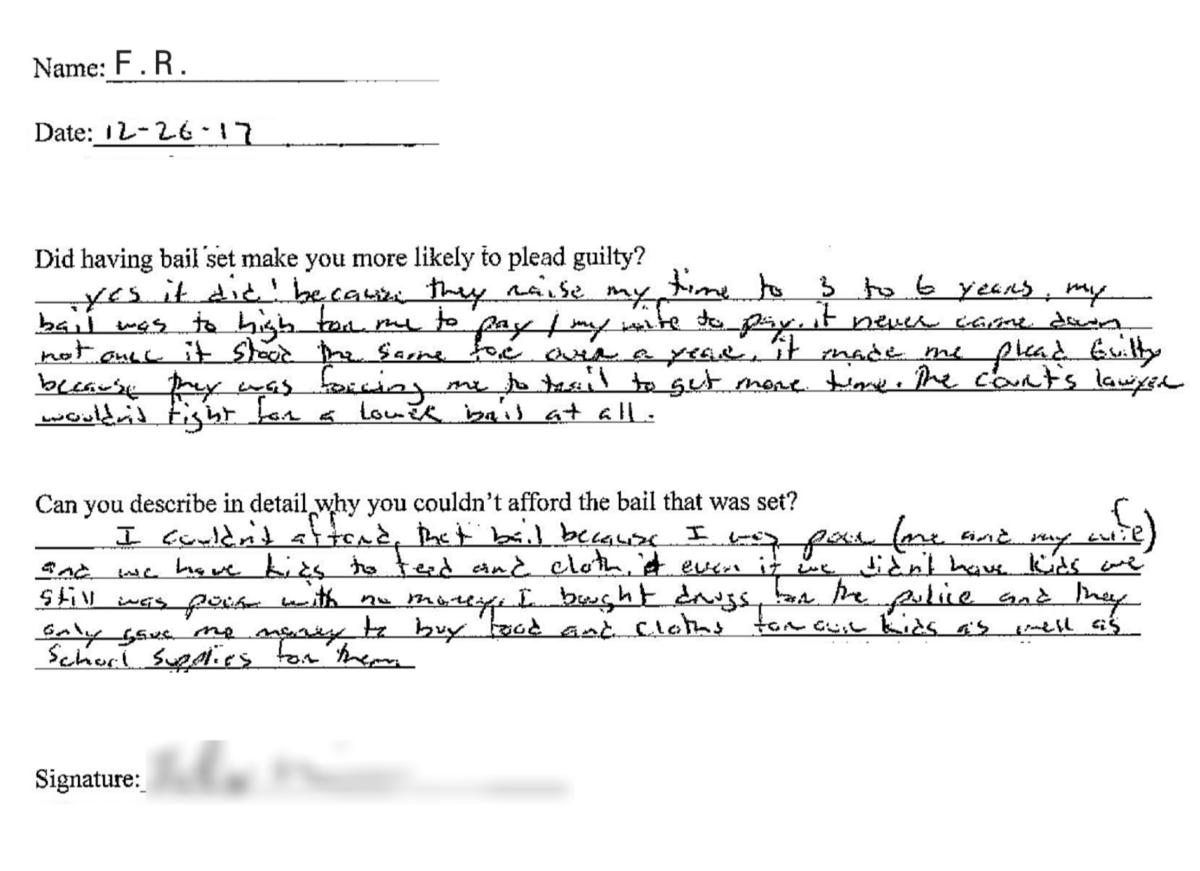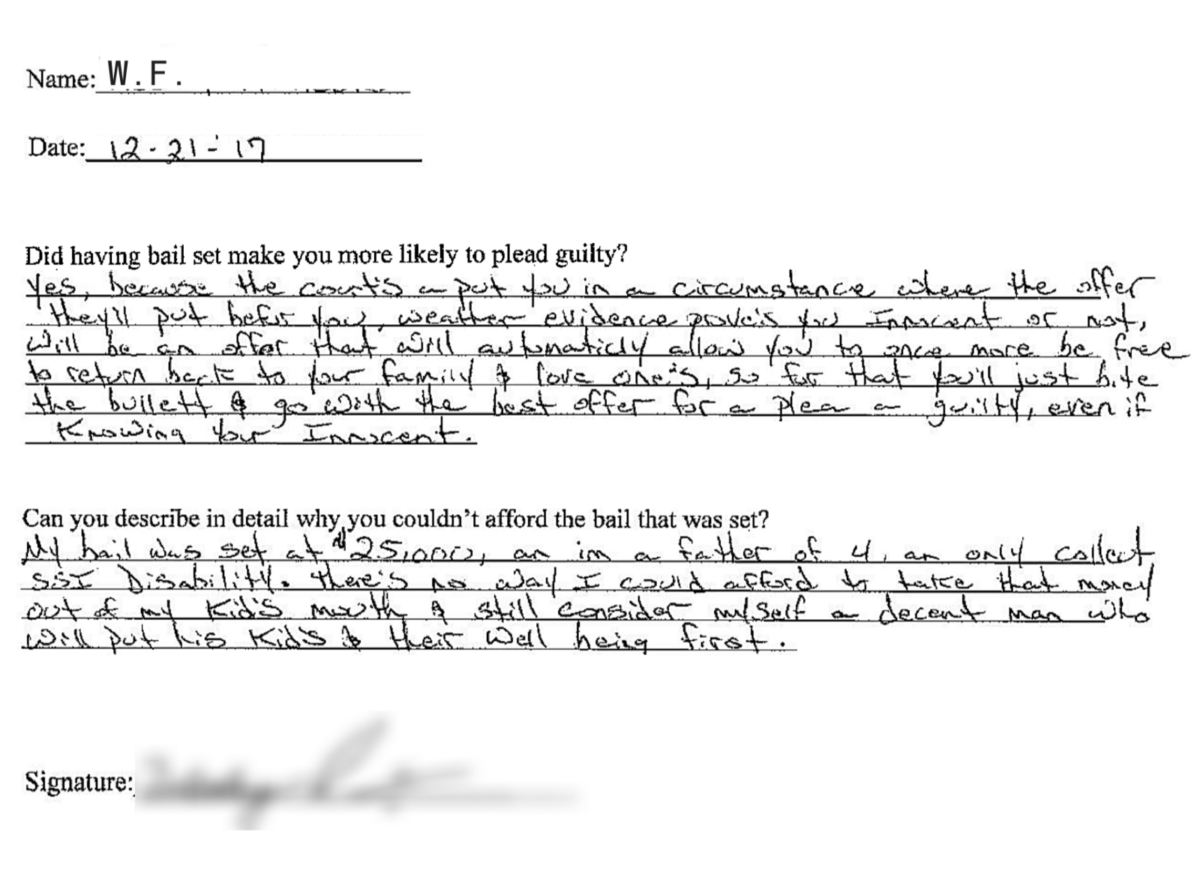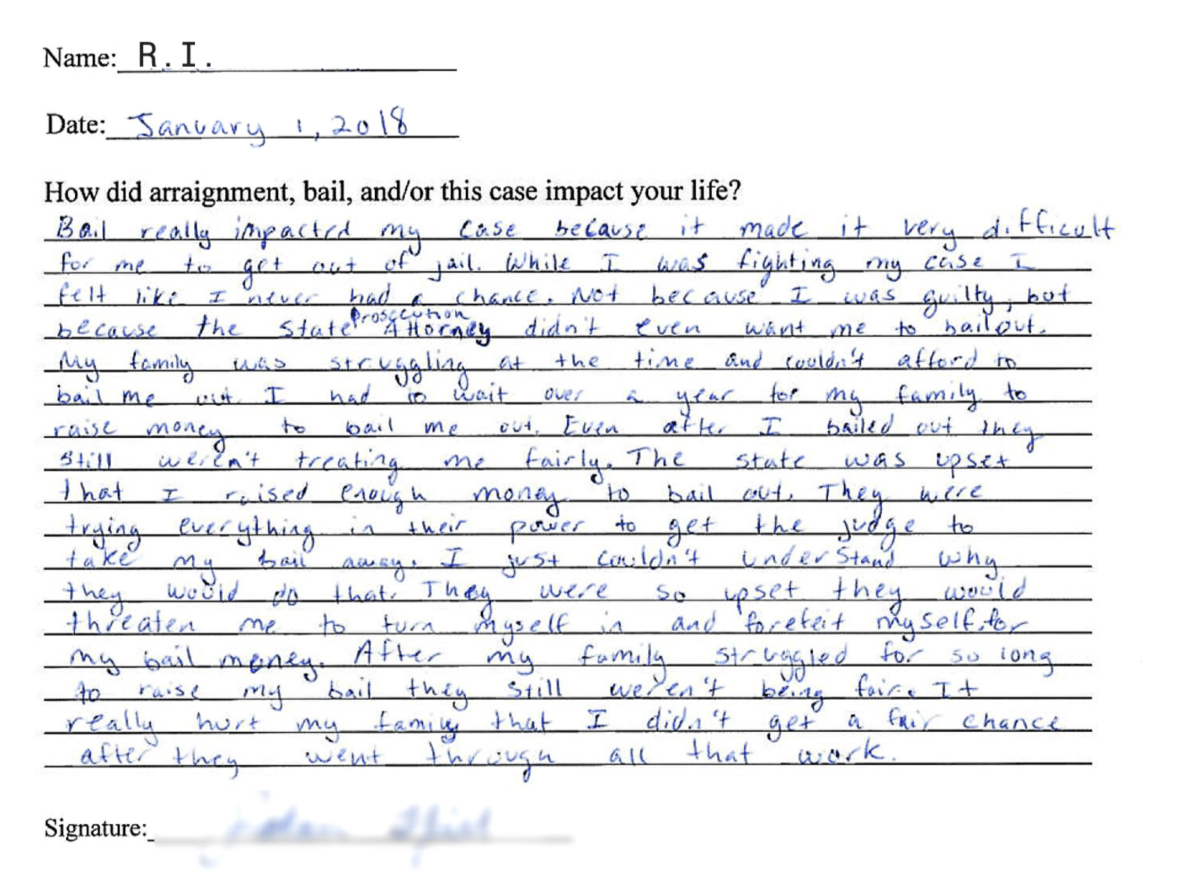As Reform Stalls in New York, Defendants Plead Out Because They Can’t Afford Cash Bail
At the beginning of the year, New York Governor Andrew Cuomo laid out a plan that would eliminate cash bail for those charged with misdemeanors and nonviolent felonies. Last week, however, his plan stalled out during budget negotiations with state legislative leaders. For bail reform advocates, including public defenders and advocates for incarcerated people, the plan’s failure serves as […]
At the beginning of the year, New York Governor Andrew Cuomo laid out a plan that would eliminate cash bail for those charged with misdemeanors and nonviolent felonies. Last week, however, his plan stalled out during budget negotiations with state legislative leaders. For bail reform advocates, including public defenders and advocates for incarcerated people, the plan’s failure serves as a bitter reminder of how difficult it is to eliminate cash bail, despite overwhelming support to do so.
In the month leading up to budget negotiations, advocates organized a series of rallies highlighting the cascading consequences of cash bail, from plea deals taken by innocent defendants who can’t afford to wait for a trial, to dangerously crowded jails filled with those who didn’t have enough money to purchase their freedom. So, the Legal Aid Society, a New York City-based not-for-profit organization providing free legal services to low-income individuals and families, has been collecting stories of defendants held on cash bail who have taken plea deals even while they maintain their innocence so that they can be released from jail.

“The courts put you in a circumstance where the offer they’ll put before you, weather [sic] evidence proves you innocent or not, will be an offer that automatically allows you to once more be free to return back to your family & loved ones,” wrote one defendant, identified as W.F., who took a plea deal in 2017, in a letter provided to The Appeal by Legal Aid.
“So for that you’ll just bite the bullet & go with the best offer for a plea of guilty, even if knowing your [sic]innocent.”
W.F. further explained his predicament — “I’m a father of 4, an[d] only collect SSI Disability,” and that, with a bail set at $25,000, “there’s no way I could afford to take that money out of my kid’s mouth and still consider myself a decent man who will put his kids & their well-being first.”
W.F.’s story is indicative of a system that punishes the poor and favors prosecutors at every turn. Without using high cash bail as leverage, prosecutors would have to take many more cases to trial — more than 98 percent of felony arrests that end in convictions occur through a guilty plea, not a trial — and be obligated to provide tangible evidence against defendants.

“While I was fighting my case, I felt like I never had a chance,” wrote R.I., a defendant whose family raised money for over one year to bail him out. “The state was upset that I raised enough money to bail out. They were trying everything in their power to get the judge to take my bail away. I just couldn’t understand why they would do that.” The problem, wrote another defendant named T.S., has “always been a system where bails are set as ransoms, so not to allow people back into society.”

In recent weeks, both the New York City Bar Association and the State Justice Task Force, which was tasked with reducing wrongful convictions in the state, have come out in favor of Cuomo’s bail reform proposals. The District Attorneys Association of the State of New York (DAASNY), on the other hand, opposed any proposal in the budget to end cash bail, citing the “realities of human behavior” and “how the criminal mind operates.”
With a bipartisan bill aimed at getting states to reform their bail systems introduced in the U.S. Senate last summer, and several other states, like neighboring New Jersey, already having eliminated almost all cash bail, New York’s failure to act seems out of step with the rest of the country. Perhaps unsurprisingly, gubernatorial candidate and frequent Cuomo critic Cynthia Nixon recently said, “We need to end cash bail in New York.”
Tina Luongo, Attorney-In-Charge of the Criminal Defense Practice at the Legal Aid Society, said in a statement that Legal Aid will continue to pursue bail reform and other much-needed reforms through the regular legislative process. “Today, tomorrow, and for the indefinite future, people of color will continue to bear the brunt of a disparate criminal justice system simply because Albany decided to put politics ahead of the people, and money ahead of justice,” Luongo said. “We are not done fighting, and we call on the Legislature to advance these key reform issues through standalone legislation by the end of session.”
But advocates for the status quo—like prosecutors—which needlessly incarcerates thousands of poor people every day, have always found a home in Albany, where cynicism and backroom-dealing reigns supreme.
